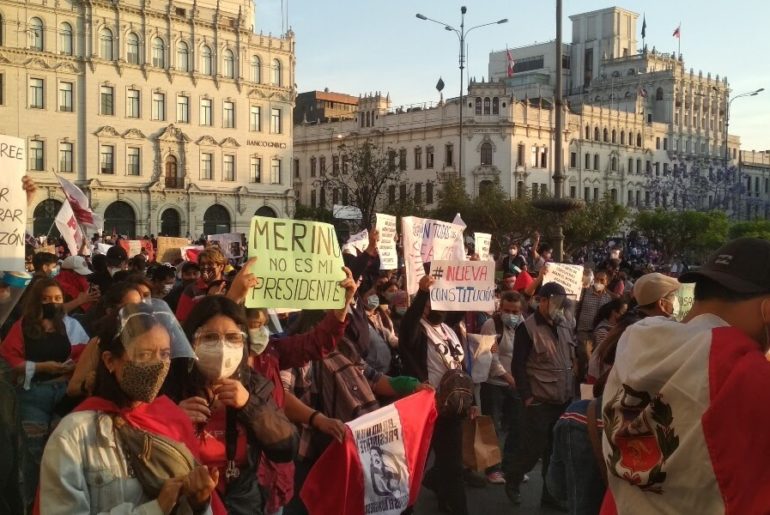After weeks of uproar, protests and civil discourse, Peru finds itself in an incredibly tough situation as the country is entangled in political upheaval at the same time as it tries to recover from an economic recession, due to the pandemic.
How did this happen?
On Nov. 9, the Peruvian congress voted to depose President Matín Vizcarra after he was accused of accepting bribes during his time as a governor from companies that won public works contracts.
“Today I am leaving the presidential palace. Today I am going home,” Vizcarra said during a speech.
The impeachment effort was the second one in three months; the Peruvian congress had put him on trial back in September after being accused of favoritism for making a multi-thousand dollar deal with little-known singer Richard Cisneros to perform motivational talks.
Vizcarra has denied both of the impeachment accusations, however, he has maintained that he will respect the Congress’ vote, which was 105-19 against him.
Later that day, Manuel Merino, the Speaker of Congress who led the push to impeach Vizcarra, was sworn-in as the interim president. The promotion to president sparked outrage and deathly protests around the country, as citizens felt that Merino had basically organized a coup against Vizcarra.
“The removal of President Martín Vizcarra is a coup d’etat,” Pedro Cateriano, a former prime minister and constitutional lawyer, told The Guardian.
“Without any doubt, the Congress has violated the constitutional order,” he said, adding: “The constitution does not allow a sitting president to be accused or politically penalized.”
“A Peruvian president can be investigated and accused when he finishes his mandate, just as it happened with [former presidents] [Alejandro] Toledo, [Alan] García, [Ollanta] Humala and PPK [Pedro Pablo Kuczynski].”
Vizcarra himself, whom most polls show still has more than 50% approval of the voters, also questions the legitimacy of his trial.
“Were they decisions made in favor of… Peru and Peruvians or were they decisions made only for personal and group interests?” he asked.
Over the next few days, thousands of Peruvians took to the streets to protest Merino’s new regime, resulting in clashes with the police and leading to dozens of wounded protestors and two deaths.
After the fatalities, Merino announced that he would be resigning to try to appease the protestors. “I, like everyone, want what’s best for our country,” Merino said in a televised address.
Upon his resignation, the Congress appointed centrist lawmaker Francisco Sagasti as the interim president, the 3rd person to occupy the highest office within a week. Upon his appointment, Sagasti asked Peruvians to demonstrate restrain.
“It is absolutely necessary to remain calm, but do not confuse this with passivity, conformity, or resignation,” Sagasti said in an address to Congress after his swearing-in.
Protestors, on the other hand, were on the fence about what Sagasti’s appointment meant for the country.
“I think that Sagasti is someone that gives democratic guarantees, who can get a transition towards a new government that will be okay,” said one protester, Paloma Carpio, to Reuters.
“Quite frankly, it’s the same rubbish. The mask has changed but everything is all the same,” another protestor, Jose Murguia, told the publication.
Sagasti is expected to serve out his term until July next year, with a new presidential election scheduled for April 11.
What is going to happen next?
Now, Peruvians will have to wait until April to elect their next leader. In the meantime, Sagasti has already extended his arm to the people, even going to visit some of the wounded protestors and insisting on creating a dialogue.
However, the unrest in the country won’t disappear overnight, as many believe that Vizcarra’s disposal was merely the last straw after years of government corruption and distrust.
“Some people think that the protests are going to stop just because Merino left, but I think it has just blown the lid off a pressure cooker that has been building for years,” Denisse Rodriguez-Olivari, a Peruvian political scientist at Humboldt University in Berlin, Germany, told CNN. “People have realized that by exerting some pressure for a few days they can achieve something.”

